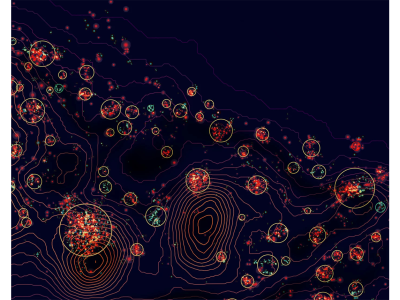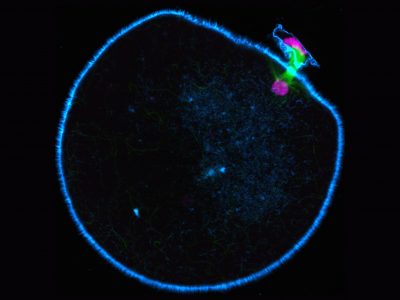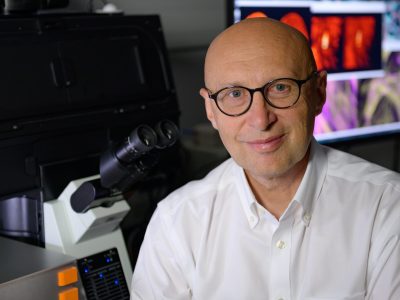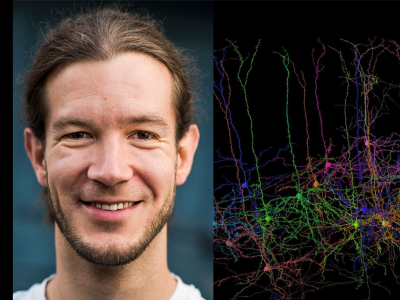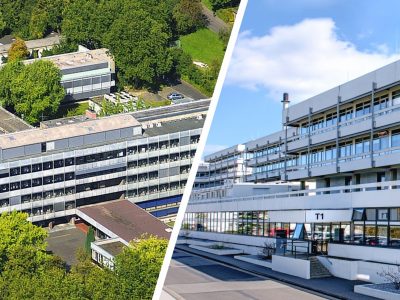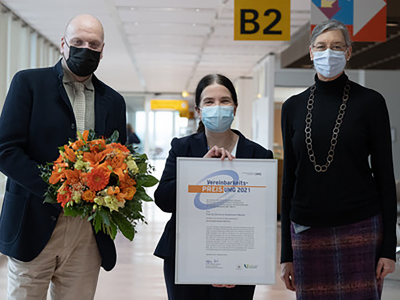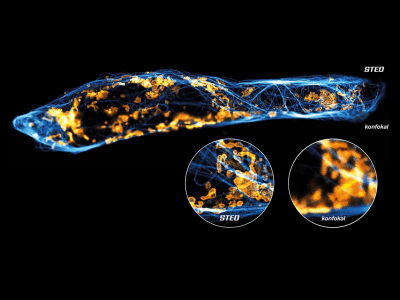22.03.2022
Why some nerve cells have more to say
Nerve cells communicate via chemical neurotransmitters stored in small containers, termed synaptic vesicles. Some of these cells are more ‘articulate’ than others as they can send more than one type of messenger. By which mechanism such multilingual communication takes place, however, remained a puzzle. Researchers from the Max Planck Institute
11.02.2022
A missing ‘motor’ causes our eggs to fail
Human eggs often contain the wrong number of chromosomes, leading to miscarriages and infertility. A research team led by MBExC member Melina Schuh at the Max Planck Institute (MPI) for Multidisciplinary Sciences has discovered that human eggs are missing an important protein, which acts as a molecular motor. This motor
07.02.2022
How does too much interferon damage the brain of unborn children?
Researchers at the University Medical Center Göttingen (UMG), including MBExC members André Fischer, Jutta Gärtner, Peter Rehling and Christine Stadelmann-Nessler, have created the first animal model that can be used to study the damaging mechanisms of excessive interferon release on the brain. The results were published in the scientific open-access
01.02.2022
Stefan Hell receives Werner-von-Siemens-Ring 2022
This year, the Werner von Siemens Ring Foundation is honoring Max Planck researcher and MBExC member Stefan Hell for pioneering achievements in the technical sciences. The physicist and Nobel laureate succeeded in observing living cells at the molecular level using a new type of super-resolution microscopy. In addition to Hell,
12.01.2022
Doctoral award of the Berliner-Ungewitter foundation for Charlotta Lorenz
The MBExC congratulates Hertha Sponer College member Charlotta Lorenz for receiving the doctoral award of the Faculty of Physics at the University of Göttingen. The award, funded by the Berliner-Ungewitter Foundation, recognized her outstanding doctoral thesis on “Interactions within and between cytoskeletal systems” that she performed at the Institute of X-ray Physics under supervision
11.01.2022
Alexander Ecker receives ERC Starting Grant
The MBExC congratulates computer scientist and brain researcher Prof. Dr. Alexander Ecker from the University of Göttingen and the Max Planck Institute for Dynamics and Self-Organization (MPIDS) for receiving a Starting Grant from the European Research Council (ERC). The ERC is thus supporting his project “Deep Neuron Embeddings: Data-driven multi-modal
03.01.2022
New Max Planck Institute in Göttingen combines natural and medical sciences
The Göttingen-based Max Planck Institutes (MPI) for Biophysical Chemistry and Experimental Medicine have merged as of January 1, 2022. This will establish a new MPI, the Max Planck Institute for Multidisciplinary Sciences. It will cover a much broader spectrum of research, thus promoting disciplinary diversity and collaboration. With a total
14.12.2021
UMG Compatibility Prize 2021 awarded to Christine Stadelmann-Nessler
Prof. Dr. Christine Stadelmann-Nessler, Director of the Institute of Neuropathology and MBExC member, receives the UMG Compatibility Award 2021. She particularly supports employees with family and care responsibilities. The “UMG Compatibility Award” stands for commitment to improving working conditions for employees with family responsibilities. Link to the press release of
08.12.2021
How matrix recycling keeps the brain flexible
Scientists of the Cluster of Excellence Multiscale Bioimaging describe a new mechanism that supports synaptic plasticity in the adult brain. Published in Nature Communications. The extracellular matrix (ECM) gives cell assemblies their structure and plays an important role in cell communication and control. In the adult brain, it forms lattices
03.12.2021
Technology transfer award for light microscopes with molecular resolution
For the entrepreneurial implementation of research results in the field of high-resolution light microscopy, abberior Instruments GmbH, the Max Planck Innovation GmbH and the Max Planck Institute for Biophysical Chemistry receive the technology transfer award from the German Physical Society. In 2012, abberior emerged from the NanoBiophotonics department of Nobel


